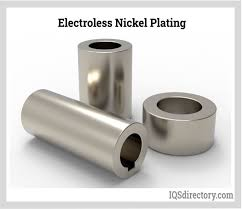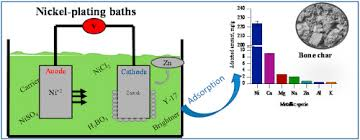Electroless nickel plating has grown in popularity as a way to coat surfaces. Many different industries make use of this technique to enhance and alter the elements of metal substrates.
The process entails the addition of a nickel-phosphorus alloy to a metal surface without needing to use an outside electrical current. This method is not only more efficient but also a less costly way of gaining high-quality and long-lasting surface coatings.
To understand not only the benefits but the importance of electroless nickel plating, this article may provide some helpful information.
The Process
In the process, the metal substrate is submerged in a bath of chemicals consisting of stabilisers, nickel ions and reducing agents. The reducing agent is particularly important as it triggers a chemical reaction which adds an even layer of nickel-phosphorus alloy to the substrate.
This method allows one to have full control over the thickness of the coating, guaranteeing near-perfect corrosion resistance alongside resistance to wear and tear. For those interested in learning more about the complex process of electroless nickel plating, coating specialists such as https://www.poeton.co.uk/standard-treatments/electroless-nickel-plating may be able to offer some assistance.
Key Elements
To understand more about the process, here is a breakdown of the main elements.
Corrosion resistance is when electroless nickel coatings give better corrosion protection to the surfaces, which makes them perfect for surfaces exposed to particularly harsh environments. Wear resistance is when the hardness of the coating improves the resistance to wear and tear over time, which extends their lifespan.
The uniform coating ensures thickness, no matter the surface. This is the case even on more complicated geometries or internal surfaces, which is a stark contrast to electroplating. The coatings also enhance adhesion and solderability, making manufacturing processes go a lot smoother.
Electroless nickel plating also improves performance and durability, particularly when it comes to essential automotive components such as gears and brake systems.
Materials commonly exposed to harsh environments in the gas and oil industry are typically coated with electroless nickel to ensure an extended lifespan for the surfaces.






